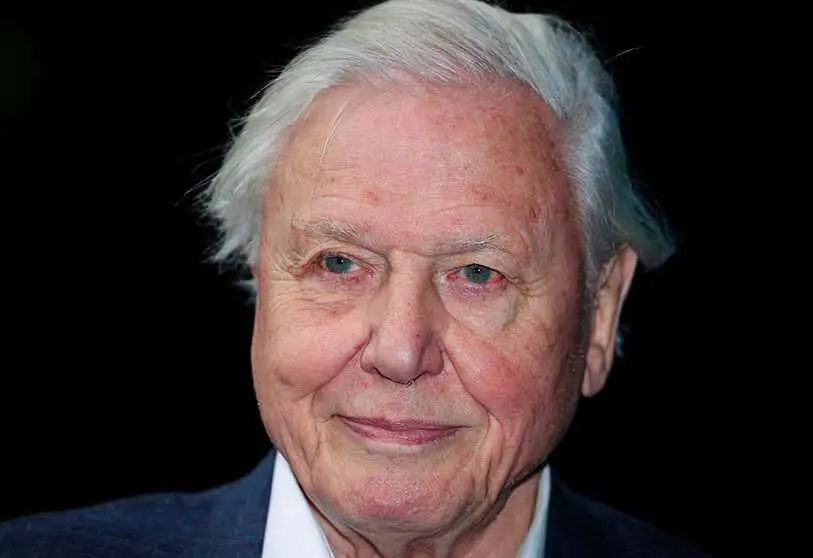Attenborough's prophecy about the future of the Earth

David Attenborough, the British scientist of the world's most watched nature documentaries, is 94 years old but seems to be in good shape. And he is a moral authority to denounce the risk of everything he sees in danger, which is everything around him. Born in 1926 in London, he has lived through a post-war and world war, and now a pandemic that has already taken the lives of nearly a million people. Like all of his generation, so little revered and recognized by the new leaders of world governance, he has known a different world from the one we have today, one that is more livable and healthier. And that is why for some decades now she has been warning us all of the risks of what is to come in the environmental environment in which human beings move.
Attenborough has written the recently published book A Life on Our Planet, which is accompanied by a documentary as brilliant as those always produced by Sir Richard's brother, the majestic filmmaker who directed Gandhi and Grita libertad. In these two works, one consequence of the other, he explains that planet Earth is on the verge of a sixth mass extinction caused by climate change and the savage exploitation of the Earth's resources. In his imaginary crystal ball, he observes floods, droughts and an increase in the acidity of the ocean that will make it impracticable for any human activity. What is to come is, according to Attenborough, much worse and more widespread than what Chernobyl was in a localised part of the planet, and equally due to the negligent action of man.
Hold on to the chair to find out what the documentary has to say. The first major disaster will take place in the Amazon, which will open the 2030s with 75% of its surface area already deforested, an ecological tragedy for the entire southern cone of the American continent. Then, by 2050, the entire ocean will turn acidic from the carbon dioxide emitted by industries and the automobile industry. For the years around 2080, he predicts a new pandemic arising from the difficulty of finding sufficient water and from the barrenness of agricultural fields, destroyed by centuries of fertilizer use that will leave them unproductive. In 2100 David Attenborough predicts that there will be no wildlife left and that existing wildlife will be limited to that which humans produce exclusively for consumption. The 22nd century will not be better according to this prophetic prediction: there will be a migratory avalanche from the coast inland, the sea level will rise and destroy the cities on the coast. This mass exodus will cause a great humanitarian crisis and inequalities will grow. Scarce rainfall will cause droughts and make water the most precious commodity above gold or oil. Agricultural production will be reduced, and fishing will have little to look for in the depths of the seas.
No one disputes the authority to explain what a privileged mind, dedicated for a lifetime to the study of the environment around us, will guess in the future. Doubts about Attenborough's speech arise from the real capacity of man to stop all these natural events, and even that their origin is one hundred percent man-made. He believes that the solutions are within the reach of the next generations and that there are a number of indispensable steps that can begin today, indeed, that are urgent at the present time to avoid the catastrophe that is approaching. But of all the minutes of the documentary and the pages of the book, Sir David invests few of them in the magic recipes, which he believes go through using renewable energies, rebuilding the oceans without knowing how this can be done, occupying much less space in the earth's crust, and slowing population growth. Measures which, if implemented, would prevent a destructive process similar to a sixth extinction as reflected in his theories? That is the question.

